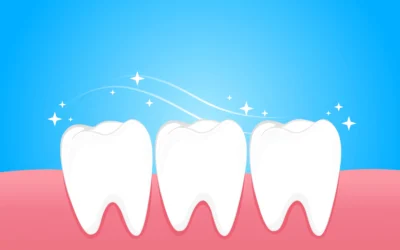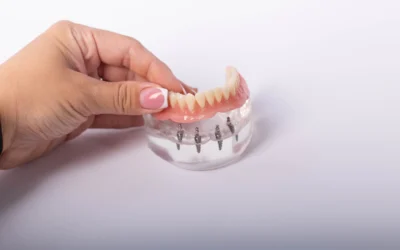There’s nothing as nerve-wracking as going for a job interview, approaching your boss about a raise, or giving a presentation to the top brass. The goal is to look confident and friendly, not arrogant or like you’re trying too hard.
Your smile is one of the first things people notice about you and can leave a lasting impression. What is your smile saying? And how do you make your smile work for you?
How Do We Communicate?
According to Professor Mehrabian, a renowned behavioral psychologist, the words we use are only 7% of a face-to-face conversation. Tone, inflection, and speech rate add another 38%, and body language makes up the last 55% of communication.
People make assumptions before you speak about how you will get along with other staff members and if you can do the job. They believe your body and tone of voice more than they believe what you say.
The Physical Effects of a Smile
Tightening your cheek muscles and lifting the corners of your mouth to form a smile alters your brain chemistry. Regardless of whether your smile is genuine or forced, the result is the same. Your brain releases chemicals that fight the effects of stress in your body, give you pleasure, help regulate your mood, and prompt a general sense of well-being.
Holding a smile for 10-15 seconds gets the brain chemistry ball rolling. Try smiling for a minute on your way to an interview to lower stress levels before meeting a potential employer. Then smile naturally when you’re introduced. You will look and feel more confident.
Natural Smiles
A natural smile is often involuntary, and it involves more than just the mouth. Muscles throughout your face work together to pull off that beautiful grin, and your eyes light up. What you’re thinking when you smile affects how it is perceived. The more you laugh and smile, the easier it is to seem natural. If smiling is difficult, practice in front of a mirror. Think of happy memories, laugh, then see what your facial muscles are doing. Are the eyes slightly squinted with crow’s feet lines? Are your cheekbones higher? Are there lines around your mouth? Are you showing your teeth?
If you need help with the smile, picture the interview going perfectly and the interviewer telling you you have the job. You will also find that when you smile at someone, they mirror your actions, like when you yawn. You’ll give your boss feel-good chemicals too, which can only benefit your interview.
Smiling also helps the group dynamic when working as part of a team. A genuine smile instills confidence, offers support and sympathy, and improves morale.
First Impressions
According to Business Wire, 48% of people polled say the smile is the first thing they look at when introduced to someone new. We are biologically wired to look for signs of health in a potential mate. Consequently, we value glowing skin, white smiles, and facial symmetry. Though this drive may be largely subconscious, it affects how we react to other people. An attractive smile makes us seem more appealing, more open, and by extension, more trustworthy because we have nothing to hide.
We also put stock in these standards, consciously or unconsciously, so we feel more confident when we see these traits in ourselves.
Characteristics of an Attractive Smile
Some of the desired characteristics in a pleasing smile, beyond the movement of mouth, cheek, and eye muscles, include:
- White Teeth– Teeth get stained over time by coffee, tea, other foods, and tobacco products. By whitening teeth, you restore the appearance of youth and health. It also shows you take pride in your appearance and hygiene. A cosmetic dentist can whiten your teeth quickly.
- Straight Teeth– Missing or misaligned teeth can indicate health problems, including nutrient deficiencies. A straight smile can improve your overall appearance and make it easier to practice good dental hygiene. If you are missing teeth from facial trauma or some other cause, you can get partial or full dentures, bridges, crowns, or veneers to correct the damage and improve your self-image. A full smile will make you want to smile more.
- Fresh Breath– The whitest smile in the world won’t compensate for bad breath. Bad breath may be a sign of poor dental care, infections in the mouth, gum disease, rotting teeth, or an internal disorder. Some medicines can also cause bad breath. If you have persistent bad breath despite brushing and flossing regularly, make a dentist appointment as soon as possible. They can pinpoint the cause and help you improve the condition.
Winning With a Smile
In a perfect world, merit would decide who gets the job, what they get paid, and how quickly they advance in the company. Some professions are competitive enough that employers have multiple options. If an employer has a choice between two qualified applicants, they will choose the one that makes the best impression. They will select the person that seems easier to work with, more trustworthy, and who will improve the overall atmosphere in the company. With a winning smile and the confidence it brings, that person could be you.
Video




